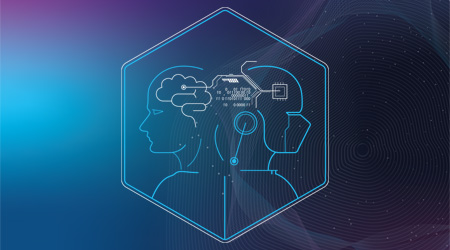Vatican City, February 28, 2022 – It is an extended family that celebrates today the second anniversary of the Rome Call for AI Ethics. Promoted by the Pontifical Academy for Life and firstly signed in 2020 by Microsoft, IBM, the Food and Agriculture Organization of the United Nations (FAO), and the Italian Ministry of Innovation, the initiative is bringing together at a global level the interest of civil society and stakeholders who want to contribute to the development of AI technologies that are transparent, accountable and socially beneficial.
Recalling the profound reasons for the birth of the Rome Call, Msgr. Vincenzo Paglia, president of the Pontifical Academy for Life, said: “Artificial intelligence is not only a tool to facilitate human life, on the contrary: depending on its use, it can change the way human beings understand themselves and the reality around them. What keeps this tool between promise and threat is a new form of fuel: data. The existences of each of us, increasingly mediated by digital devices, become tools for this new digital marketplace. For this reason, the protection of the individual and the effectiveness of the rule of law must now be confronted with the new giants of data extraction and processing. The Rome Call is the place where civil society and every man of good will can contribute to the humanization of the digital continent. In a season of machines defined as intelligent, we need ethics to be computable by them: we need, as Pope Francis says, algorethics. About the misuse of digital as a ground of conflict in what we could call a “war of computers”, we should paraphrase the ancient Latin motto “si vis pacem para algorethics”: to prepare algorethics is to prepare Digital Peace”.
But what is the matter with AI?
Addressing the ethics of artificial intelligence is an urgent matter of global concern. Artificial intelligence permeates every aspect of our lives, whatever our age, profession and geographical location. Introducing ethical principles in AI development means to build an artificial intelligence at the service of the whole of humanity, not just profit. Since its signature on February 28, 2020, the Rome Call for AI Ethics has been actively raising awareness among the public, institutions, companies and all stakeholders concerned on the need for algorethics, i.e. ethics that can be understood by machines: the more and stronger the voices requiring that human beings be put at the center, the more effective the results.
Is AI good or bad?
Artificial intelligence is a tool: its impact on the world – either good or bad – depends on its settings. AI cannot understand typically human elements, such as ethics, morals, culture, emotions, art or history, because these cannot be expressed through mathematical formulas. It is therefore up to humans, as they design AI operational algorithms, to set up the necessary instructions for machines to always respect the fundamental rights of every human being while performing their tasks.
What can the Rome Call for AI Ethics do to promote a type of AI that is respectful of human beings?
The Rome Call for AI Ethics was launched in an effort to promote an alliance among institutions, organizations and governments with a view to a digital innovation and technological progress that could serve all humankind. In its three sections (ethics, education and law), six ethical principles underlying algorethics stand out. Transparency: AI systems must be understandable to all. Inclusion: these systems must not discriminate against anyone because every human being has equal dignity. Accountability: there must always be someone who takes responsibility for what a machine does. Impartiality: AI systems must not follow or create biases. Reliability: AI must be reliable. Security and privacy: these systems must be secure and respect the privacy of users.
The RenAIssance Foundation
On April 12, 2021, Pope Francis established the RenAIssance Foundation, a non-profit organization with the objective of guarding and promoting the Rome Call for AI Ethics, and of supporting the anthropological and ethical reflection of new technologies on human life. The RenAIssance Foundation is located in the Vatican City State, at the Pontifical Academy for Life.
To achieve these goals, the RenAIssance Foundation aims to encourage scientific initiatives and collaboration with International Bodies, Sovereign States, universities, research centers, private and public companies involved in the field of artificial intelligence and to promote fundraising to support these activities.
For more info, please see: www.romecall.org



